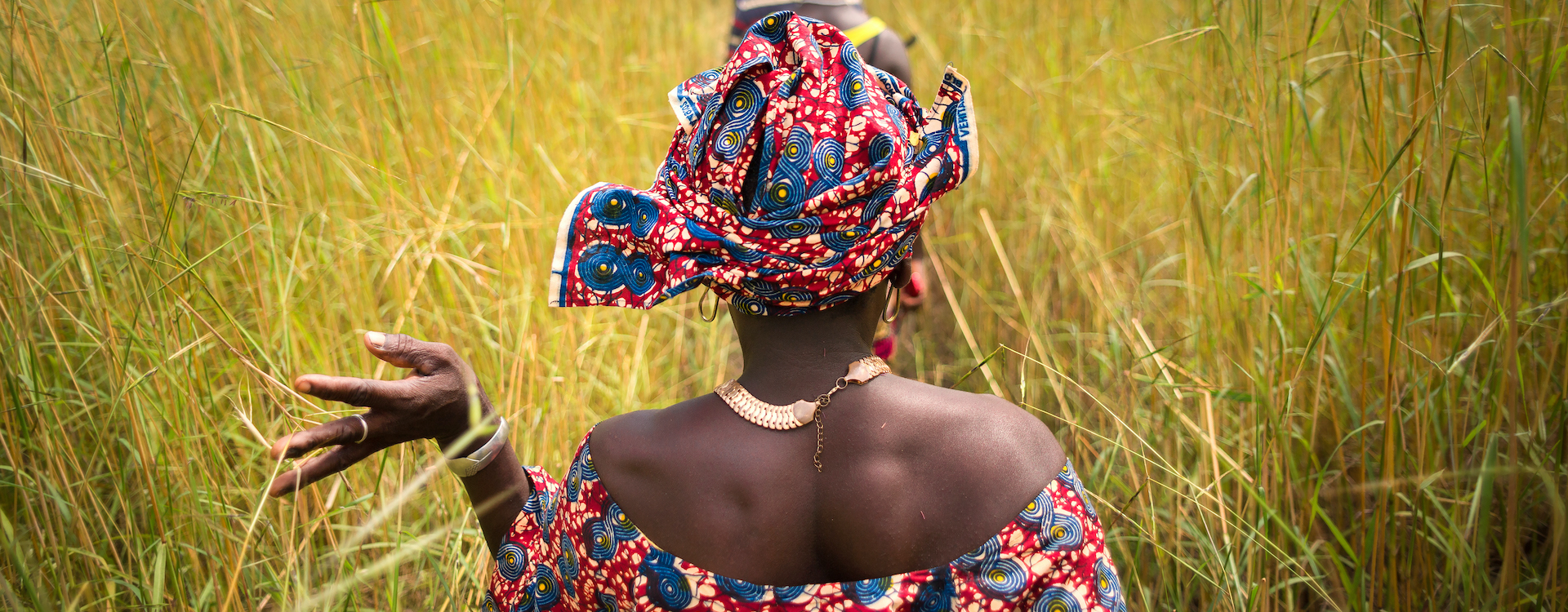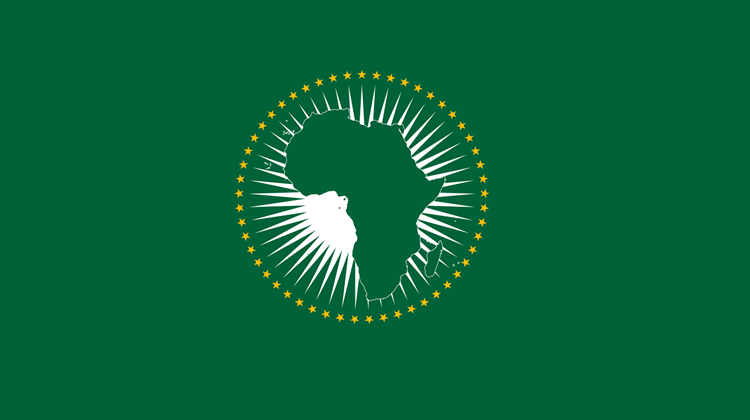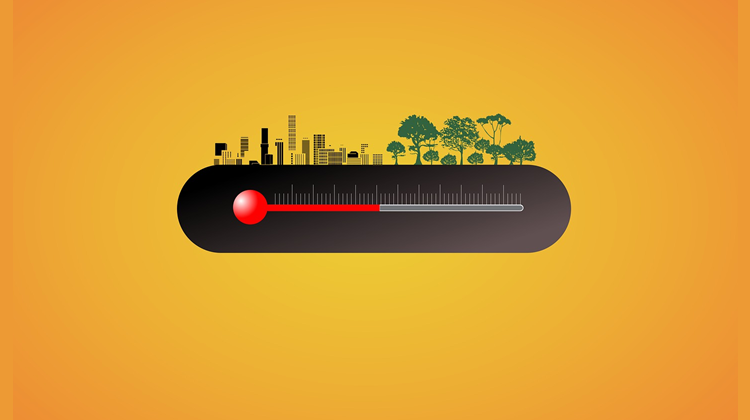Intersectional gender equity must inform efforts to enhance climate security in Africa

Promoting women’s meaningful participation in climate action can improve the overall resilience of Africa and the planet
The adverse consequences of climate change are being felt around the world, but nowhere more keenly than in Africa. While African nations are among the least responsible for contributing to global emissions, African populations are at significantly higher risk of experiencing the negative effects of climate change because of their widespread reliance on the natural environment.
Evidence also shows that climate change impacts are highly gendered. The vulnerability, exposure, and adaptive strategies of women, girls, men, and boys reflect their diverse intersectional identities, with women and girls bearing the brunt. Changing environmental conditions compound underlying social, economic, and political barriers that limit females’ decision-making opportunities and coping capacity. As a result, African women and girls are usually more vulnerable than their male counterparts.
The gender inequalities, discriminatory norms, and over-burdening roles common in most African nations increase females’ exposure and vulnerability to climate-related disasters. This puts women and girls at higher risk, and weakens the resilience of communities as a whole.
At the same time, and despite multiple challenges, African women play a crucial role in climate change adaptation and mitigation. As key actors in sustaining families, building community resilience, and responding to climate-related disasters, women possess the critical knowledge and skills needed to adapt to changing environmental conditions and identify practical solutions.
Efforts to mitigate the negative impacts of climate change need to also consider the intersectional dimensions of social equity
Intersectionality refers to the multidimensional inequalities, such as gender, generation, disability, religious or ethnic identity, that frame people’s positions in society. These dimensions of social differentiation are mutually reinforcing and often intersect with each other. Unequal social, economic, and political opportunities lead to uneven access to resources and services.
The intersection of gender and other intersectional dimensions of identity plays a critical role in determining how people experience, respond to, and recover from the adverse effects of climate change. Compounded security and climate-related risks also are more likely to magnify challenges related to governance, and entrench gender and other structural inequalities. Women and girls, and members of already vulnerable populations, are thus placed on the frontlines of multiple and interrelated crises.
The myriad ways in which gender inequality constrains females’ lived experiences also hamper their resilience and adaptive capacity. They cause women to be more exposed to gender-based violence, and girls to be less likely than boys to continue their education during and after climate-related events and other sources of insecurity, including conflict. Those who are also differently abled, and/or members of ethnic or religious minorities, are faced with additional challenges.
A gender-blind approach that ignores diversity and inclusion weakens climate change adaptation and mitigation responses, and reduces the efficacy of climate policy. It also contributes to the further marginalisation and harmful effects on women, girls, and other excluded groups, increases overall insecurity, and may even lead to the (re)surgence of conflict.
The adverse consequences of climate change are being felt around the world, but nowhere more keenly than in Africa
Attention to intersectionality in climate action is critically important in regions which, like Africa, are both highly culturally diverse and severely affected by fragility and rapidly changing environmental conditions.
Women in Africa are heavily reliant on climate-sensitive livelihoods. They represent over 40% of the agricultural workforce in 46 out of 54 African countries. In Sub-Saharan Africa, more specifically, women make up 60-80% of smallholder farmers. With only 4% of African farms irrigated, women farmers overwhelmingly rely on the rains to water their crops. Traditional crops such as millet and peanuts, which need regular watering, are severely affected by drier conditions and increasingly erratic rain patterns.
World Bank data confirms that female farmers are often more vulnerable to extreme-weather events than their male counterparts. Many struggle to secure land rights and lack bank accounts and emergency savings as survival strategies when crises hit.
The complex connections between gender, climate, and insecurity in Africa are further manifested in the context of population growth and related resource consumption. Countries with the highest fertility levels tend to be those with the lowest income per capita. Global population growth has therefore over time become increasingly concentrated among the world’s poorest countries, most of which are in Sub-Saharan Africa.
Evidence also shows that climate change impacts are highly gendered
In this region, where some 738 million people already live without adequate food supplies, the population is projected to jump by 95% by mid-century, according to the Institute for Economics and Peace. A significant fertility decline can be achieved only if women are empowered educationally, economically, socially, and politically, regardless of the intersectional social position they occupy. Women’s empowerment is, in turn, a key requirement of climate-resilient societies in Africa and elsewhere.
So what is the way forward?
In Africa, the worsening climate crisis and pronounced gender inequality are inextricably intertwined. The current focus on adaptation to climate change has led to a heightened impetus to recognise and address the uneven distribution of vulnerability to and gender-differentiated impact of climate change.
The adverse impacts of climate change exacerbate other risk factors, especially in already fragile contexts. In turn, these factors magnify pre-existing economic, social, or political drivers of insecurity. Climate change shocks are superimposed on political, economic, social and health stressors.
Women possess the critical knowledge and skills needed to adapt to changing environmental conditions
In sub-regions such as the Sahel, the Lake Chad Basin, and the Horn of Africa, for example, the combination of these factors strains the resilience of communities in general, and women and girls in particular. Coming to terms with these multiple and interconnected challenges also represents opportunities for better, more equitable outcomes.
Tackling social exclusion and discrimination as well as promoting social equity in line with human rights obligations must aim at breaking vicious circles and addressing structural factors. Efforts to mitigate the negative impacts of climate change need to also consider the intersectional dimensions of social equity, acknowledging that gender inequality constitutes a universal axis of social differentiation.
Nevertheless, African women mustn’t be seen as victims of the multiple climate-related shocks and stressors that affect their continent, but as active and effective agents and promoters of adaptation and mitigation.
Women’s gender-differentiated knowledge of water harvesting and storage, food preservation and rationing, and natural resource management can contribute to enhancing local adaptive capacity and sustaining the livelihoods of their families and communities. Promoting their meaningful participation in climate action improves the overall resilience of the African continent and the planet.
Dr. Marisa O. Ensor is an applied environmental and legal anthropologist currently based at Georgetown University’s Justice and Peace Studies Program. She is also the current Chair of the Environmental Peacebuilding Association’s Gender Interest Group (“EnPAx-GIG”).
Image: UN Women/Joe Saade






